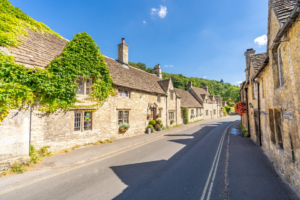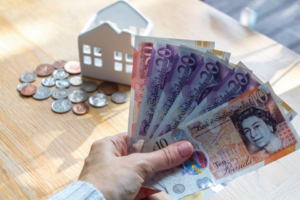Airbnb planning permission
People who offer short term lets may have been concerned by the recent news that properties let for less than 90 nights per year will be subject to planning permission from summer 2024. As part of the government’s long term housing plan, new legislation will come into force in just a few months, giving more power to local councils when it comes to balancing the visitor economy with housing needs. Here, we explore what the new regulations are, who is affected and why the change has come about.
What are the current rules?
Under current regulations, those with Airbnb type lettings – i.e. properties that are only let for up to 90 nights per calendar year – do not need to obtain planning permission from their local authority. Anyone can rent out all or part of their main property on a short term basis without notifying the council. Similarly, properties dedicated to short term rental do not currently need planning permission to be used for that purpose.
Indeed, Airbnb is set up to help hosts comply with the 90-night rule, restricting bookings once the threshold is met. If hosts want to exceed the limit, a planning application may be required depending on the guidance set out by their local authority.
What is the change?
From summer 2024, those who want to offer a new short term let that is not part of their sole or main home will need to complete a planning application prior to letting. This will allow local councils to decide whether to approve more holiday lets in the area, depending on housing needs for local residents.
In order to make this decision, councils will need access to information about all of the existing short term rentals. As such, anyone offering Airbnb type lettings for less than 90 nights each year will need to sign up to a national register, providing specific details about their property and its availability.
A new ‘use class’ will be introduced for short-term lets that are not used as a sole or main home, helping councils to understand the impact of holiday rentals in their areas.
Why is the change happening?
The legislation has been announced by Housing Secretary Michael Gove in response to the housing crisis. In areas where tourism is big business, such as Devon and Cornwall, the number of short term lets is so high that some local people are being prevented from finding affordable housing. In order to create opportunities for residents and prevent them from being pushed out of their communities, local councils will have more visibility of the number and nature of short-term lets. This will enable them to strike a better balance between meeting the demands of tourism and ensuring those who need homes can access them.
In addition, the introduction of a register will enable councils to enforce key health and safety regulations, meaning tourists will enjoy a better experience from hosts.
Who is affected?
Michael Gove has acknowledged that short term lets are a valuable part of the economy. As such, homeowners will be able to continue renting out their sole or primary residence for up to 90 nights per year without planning permission. Similarly, those with existing dedicated short term lets will not need to apply for planning permission. Their accommodation will automatically be reclassified into the new use class.
The requirement for planning permission will only apply to those who want to introduce a new dedicated short term let to the market. Commercial properties such as hotels and B&Bs will not be affected.
All hosts, however, will need to sign up to the register. Airbnb has supported this move, with Amanda Cupples, general manager for Northern Europe, Airbnb saying:
“The introduction of a short-term lets register is good news for everyone. Families who host on Airbnb will benefit from clear rules that support their activity, and local authorities will get access to the information they need to assess and manage housing impacts and keep communities healthy, where necessary.”
It’s thought that in addition to the introduction of these short term let and Airbnb UK regulations, HMRC will have access to the national register. That means hosts will need to ensure they are paying the right amount of tax on any earnings above the thresholds.
How much can I earn through Airbnb before I need to pay tax?
The type of accommodation you offer via Airbnb or similar platforms affects how much tax you will need to pay. Those renting out a room in their main home can earn up to £7,500 before they are required to pay tax. Those renting out a dedicated short term let or second property, however, only have access to a £1,000 property allowance. Any earnings above these thresholds are subject to Income Tax.
Airbnb planning permission and tax
If you’re unsure whether you’re affected by the changes to the legislation, or you need clarification on Airbnb planning permission, you’ll need to contact your local authority. As a rule, however, those already letting either their main home or a dedicated short term let for up to 90 nights a year will not be affected. The only thing you’ll need to do in this case is ensure you are part of the national register. If you need tax advice for your short term let, don’t hesitate to contact Ibiss & Co. As experienced accountants for Airbnb hosts and buy to let landlords, we can help you navigate the complexities of tax compliance regarding your property income. You can find out more by visiting our property service page, or simply get in touch with the team today. We have offices in Barking, Tooting and Walsall.




